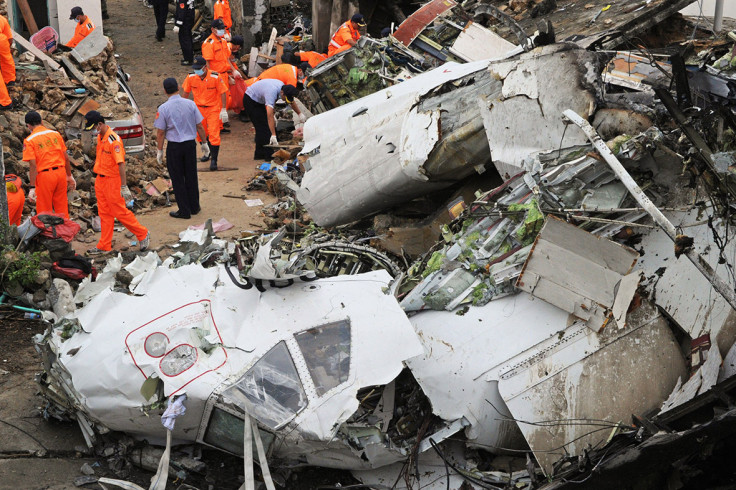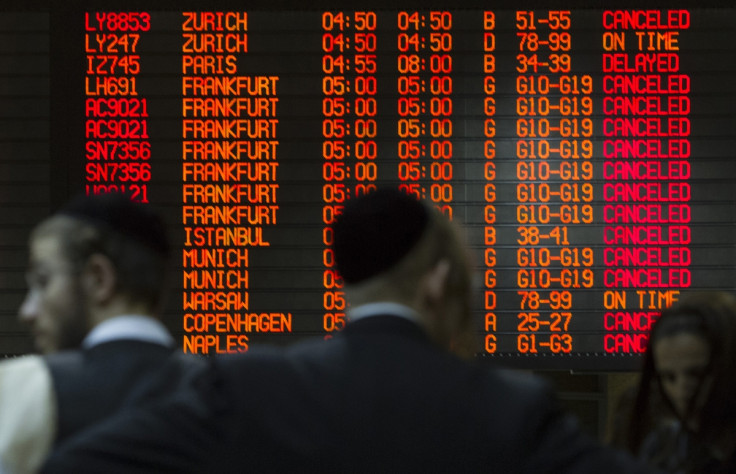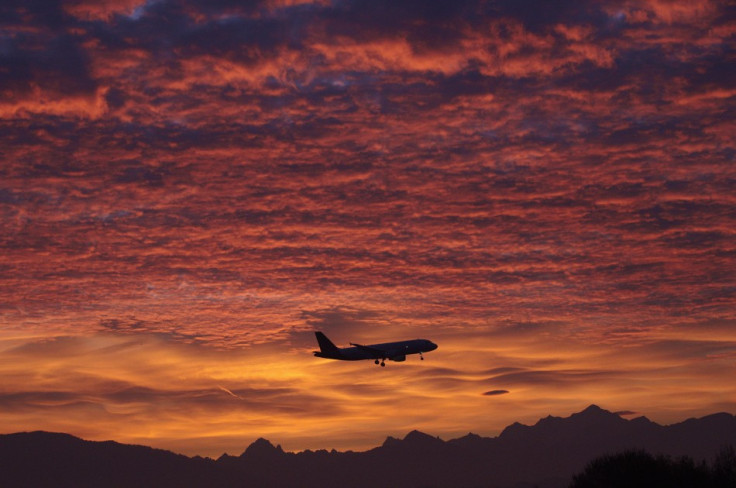Air Algerie, MH17 and Taiwan Crashes: Is the Fear of Flying Set to Surge?

Over the last week, three passenger planes have crashed, killing at least 350 people on board.
Malaysia Airlines MH17 crashed in Ukraine near the Russian boarder after apparently being shot out of the skies by pro-Russian separatists who mistook the Boeing 777 for a Ukrainian fighter jet. All 298 people on board were killed.
Days later 48 people were killed when a Taiwan TransAsia Airways plane crashed in Taiwan's Penghu archipelago during stormy weather.
Within 24 hours Air Algerie flight AH5017, travelling from Burkina Faso to Algiers, crashed killing all 116 passengers on board.
These crashes all follow the disappearance of Malaysia Airlines flight MH370, which lost contact with air traffic control on 8 March with its whereabouts still unknown.
It is estimated that one in 10 people suffer from a fear of flying – also known as aviophobia or aviatophobia – but will this increase in light of recent disasters?
Kate Cooper-Owen, 27, said she has never liked flying but that her fear became worse after a flight she was on crash-landed when she was 17: "We had to land at an airport and there was this fire engine on the runway ready – it wasn't into a field or anything.
"I was kind of holding it together but then this little boy at the front of the plane said 'I don't want to die' really loudly, and that really set me off. It definitely got a lot worse after that.
"I just feel like 'I shouldn't be up here' the entire time in the air."

With most people afraid of flying, the fear itself stems from something deeper than the actual flight. People can feel claustrophobic from being in a confined space they are unable to get out of, while many sufferers' fears come from the loss of control flying brings.
Rose Partridge, clinical hypnotherapist at Avery Hypnotherapy, said there is a difference between people who have had a bad experience and those who have not: "[A bad experience] would manifest and that would be very hard to cure as they've actually experienced something bad happening.
"If it's a phobia it's an illogical fear, but if they've experienced something it isn't illogical."
Cooper-Owen said she feels that the plane is going to "drop out of the sky" while on board. While many people use alcohol or drugs to calm their fears, she doesn't: "I like to be prepared in case there's any kind of incident."
Kate Bond, 28, said she is terrified of flying and now feels physically sick for days before the flight: "I couldn't say when it started. I've never had a bad flight. I used to fly back and forth to New York all the time and never had an issue, but then all of a sudden I started to get worried about it and it just got progressively worse.
"I don't even think it's the fear of crashing, it's the feeling of being out of control – putting my fate in someone else's hands who I don't even know scares me more than anything else.
"The last time I flew it was really calm, there wasn't any turbulence and I landed and felt quite good about it, but then all this started happening and it's like every day there's something else. It's a fear where I'm just incapable of responding to anybody emotionally because I'm numb with fear."

Sara Howard, clinical hypnotherapist and stress management consultant, said that while some people's fears come from bad experiences, in many cases, people's stress manifests as a flying phobia: "A lot of the time it's not about the fear of flying it's about the fear of being out of control. Many people often spend the day and hours preceding the flight, worrying about the jobs they may they still have to do and therefore they have increased their anxiety levels before even boarding the plane.
"Sometimes its internalisation of the pressures that build-up of in trying to do a long list of tasks before getting on the plane, some people are afraid because of an experience that came at a time when they were already stressed.
"If something has already stressed a person, then anything else that happens can actually add to that pressure and anxiety. It becomes a cluster of memories."
Partridge reiterated this point, saying: "It could be not the actual flying. It could be anything. Sometimes it's the confinement, but mostly I think it's being out of control. Also there could be feelings of claustrophobia in the plane itself because people can't get out. The plane is sealed and once they're up there there's nothing they can do about it – they've lost complete control, they're not even flying it."
While people have different ways of managing their fears – Bond said she is considering using medication – stress reduction appears to be key. Partridge said she treats people by getting them to feel calm, rationalise their fear and learn to look forward to the flight.

She explained that although there is always an increase in the number of people seeking help for the fear of flying during the summer months, the current spate of plane crashes will not necessarily lead to more cases: "I don't think it would make any difference if someone is not afraid of flying because they have already rationalised it, but if they were going into the direction of a war zone, for example, then I would say they would probably be more nervous."
Bond said that she will be getting the train back from Geneva to London next week instead of travelling by plane, while Cooper-Owen has learned to manage it to the point that she can fly: "The rational bit of my brain tells me its fine – otherwise I wouldn't fly anywhere – I would have to go places by boat or never leave the UK - but I am able to suppress it to a point where it's just stress."
However, to overcome the fear altogether, another former flying-phobic said he took a different tactic. Julian Wood, 30, said he used to not be able to get on board a plane without a bottle of whisky to hand, but cured himself by reading up on air travel and the science behind it.
"I engaged a bit with the science of how planes work and the statistics about how safe it is particularly the fact about the glide ratio - 15:1 - a plane physically cannot go one foot down without moving 15ft forward.
"Realising that much like a paper plane won't just spontaneously fall out of the air, neither will mine. That really helped me get over it and now I can now fly sober."
Some famous aviophobics included Dennis Bergkamp the former Arsenal forward who had a serious fear of flying that caused him to miss some of the north London club's crucial Champions League ties. He did have to set out by road or train ahead of his team mates in the games he featured in.
© Copyright IBTimes 2025. All rights reserved.






















